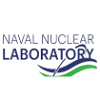Minimum Qualifications Bachelor’s degree and 6 years of progressively responsible experience in program policy and administration development and implementation for a health-related organization or health-related program AND at least three years of supervisory experience OR one year of managerial experience.
Education substitution : Four years of specialized experience or an associate degree and two years of specialized experience may substitute for the bachelor’s degree.
Experience substitution : . or master's degree may substitute for one year of specialized experience; . may substitute for two years of specialized experience.
Preferred Qualifications : CERTIFICATIONS / LICENSES : Certification in Project Management (PMP) or related field; EMS certification or license (.
- Paramedic, EMT) preferred but not required. EXPERIENCE : Minimum of 10 years of progressive experience in emergency medical services, healthcare administration, or regulatory compliance, with at least five years in a leadership or management role;
- Proven track record in strategic planning, project management, and operational oversight within a healthcare or emergency services environment;
- Extensive experience in regulatory compliance, including the development, implementation, and enforcement of policies and standards;
Demonstratable experience effectively managing and leading cross-functional teams in a complex organizational setting; Experience in leading change management initiatives, particularly during significant healthcare reforms or system overhauls, which demonstrate the ability to effectively guide an organization through transitions while maintaining high standards of service and compliance.
- SKILLS / KNOWLEDGE / ABILITIES : Strong leadership skills with the ability to set strategic direction and motivate teams towards achieving organizational goals;
- Excellent organizational development skills, including structuring, staffing, and leading a dynamic and diverse organization;
- In-depth knowledge of EMS regulations, public health laws, and best practices in EMS operations and licensure; Advanced project management skills, capable of overseeing multiple complex projects simultaneously;
- Exceptional communication and interpersonal skills, capable of effectively engaging with a range of stakeholders and fostering a culture of collaboration and innovation;
Commitment to promoting transparency and adherence to high ethical standards in financial and operational practices.
Duties Description The Bureau of EMS Standards and Licensure Bureau Chief (Project Director) plays a pivotal role in leading and overseeing the development and operationalization of the Bureau of EMS Standards and licensure.
The incumbent is responsible for the strategic planning, organizational development, budget management, and project oversight necessary to establish a comprehensive and efficient emergency medical services (EMS) compliance and licensing system.
The Bureau Chief collaborates with key stakeholders, ensures regulatory compliance, and promotes innovation to ensure the highest standards of care and the promotion of public safety within the emergency medical services (EMS) field in New York State.
- The major functions and associated duties for this position include, but are not limited to : 1) Strategic Leadership and Operational Management : Provide visionary leadership, developing and communicating the bureau’s strategic vision, mission, and goals;
- Align bureau operations with strategic objectives, ensuring effective implementation of policies and directives; Establish and maintain the organizational structure and reporting lines, fostering a culture of excellence and continuous improvement;
Regularly engage with policymakers and industry leaders to anticipate future trends and align bureau strategies accordingly.
- 2) Project Operationalization : Lead the planning, development, and execution of key projects aimed at operationalizing and enhancing the bureau's EMS standards and licensure programs;
- Develop detailed project plans that include scope, resources, timelines, and milestones, ensuring alignment with strategic objectives;
Manage cross-functional teams to deliver projects on time, within budget, and in compliance with regulatory standards; Build and maintain strong relationships with key stakeholders such as regional EMS councils, healthcare facilities, and government agencies.
- 3) Regulatory Compliance and Quality Assurance : Ensure strict adherence to EMS regulations and public health laws; Direct investigations and enforce actions for compliance violations within the bureau's jurisdiction;
- Maintain rigorous records of compliance activities and collaborate with legal authorities as required; Propose, develop, and implement policies and regulations related to EMS standards and licensure;
- Work closely with legal experts to draft and review regulatory documents, ensuring the enhancement of EMS quality and safety;
Implement a regular review system for updating and refining EMS standards based on evolving best practices and technological advancements.
- 4) Performance Management and Compliance : Monitor and assess bureau operations through key performance indicators and detailed performance analysis;
- Uphold ethical standards and ensure legal compliance across all bureau activities, while engaging in continuous improvement practices;
- Regularly review and update compliance protocols to reflect changes in laws and regulations, ensuring that all bureau activities remain compliant;
- Develop a feedback mechanism to gather insights from employees and stakeholders, which can be used to inform continuous improvement efforts;
Introduce advanced analytics and business intelligence tools to enhance the accuracy and effectiveness of performance evaluations.
- 5) Staff Services and Management : Provide leadership and oversight for all staffing operations within the bureau, ensuring optimal staffing levels and efficient staff deployment;
- Establish mentorship programs that pair less experienced staff with senior leaders to foster knowledge transfer and leadership development;
- Foster a professional development environment that encourages skill enhancement, leadership training, and career advancement for all employees;
- Implement and monitor performance evaluation systems that accurately assess staff contributions and align with bureau goals;
- Create a succession planning program that identifies and prepares future leaders within the bureau, ensuring leadership continuity and stability;
Integrate diversity and inclusion strategies into all aspects of human resource management to enhance workplace culture and employee satisfaction.
Some positions may require additional credentials or a background check to verify your identity.








